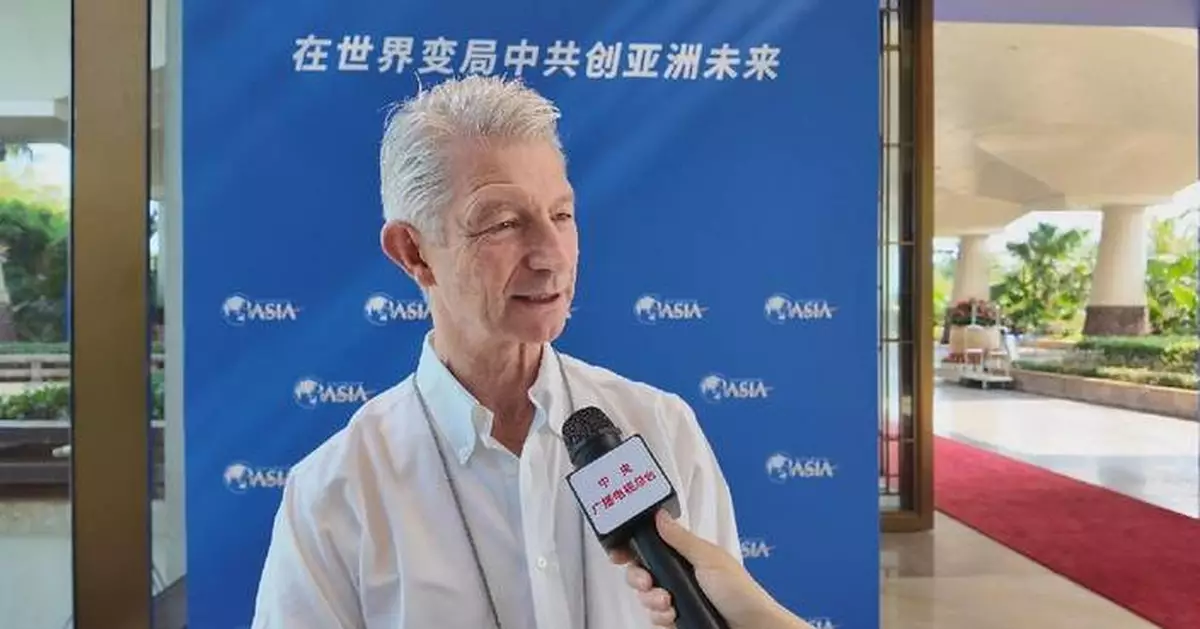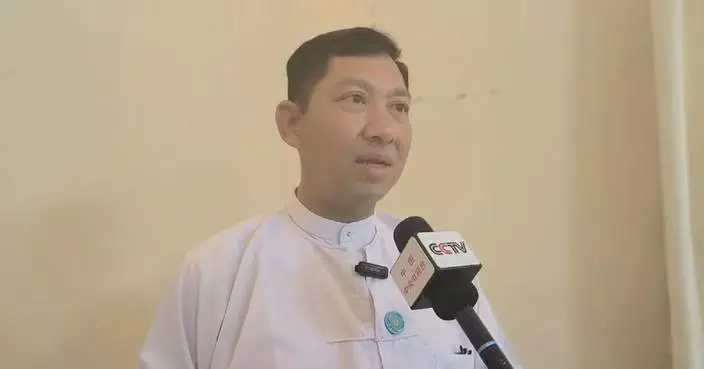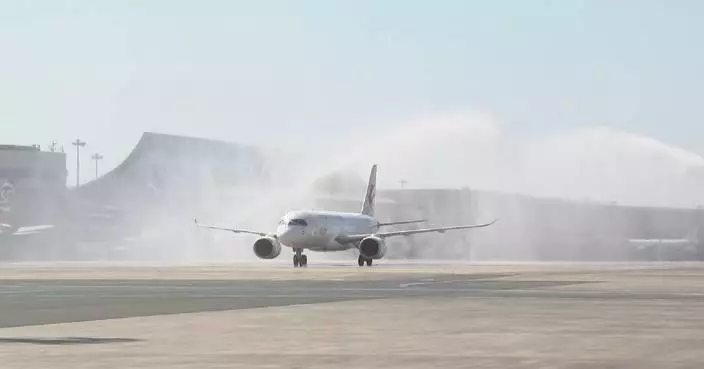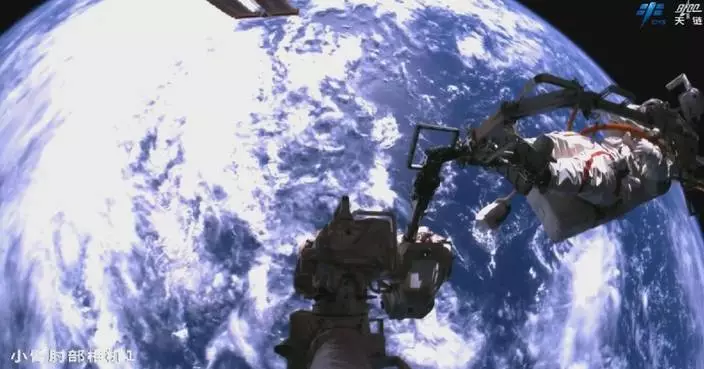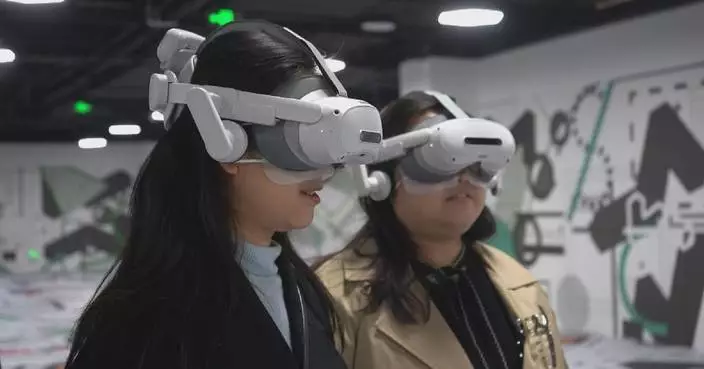Australia and China could be seen to be innovation partners for the future that will solve the problems both for Asia and the world as a whole, said an Australian business leader.
David Olsson, national president and chairman of the Australia China Business Council, is in the coastal town of Boao in south China's Hainan Province, attending the Boao Forum for Asia (BFA) 2025 Annual Conference which opened on Tuesday, with discussions revolving around four main topics including global trends, growth, outlooks and new drivers.
Founded in 2001, the BFA is a non-governmental and non-profit international organization committed to promoting regional economic integration and bringing Asian countries closer to their development goals.
Often referred to as the "Asian Davos," the forum brings together political and business leaders to discuss trade, investment and technology, with growing participation from Global South countries in recent years.
This is the sixth time for Olsson to attend the annual event. In an interview with China Central Television (CCTV), he expressed his appreciation of the role BFA plays in offering a platform for global communication as the world goes through profound changes.
"Of course we've got the geopolitical dimension to a lot of what we're going on, but we've got the long term trends around the changes in trade flows, people flows and capital flows. We've also got, of course, extraordinary technological change, which is transforming our society. So all of these combined mean that we've got a lot to talk about," he said.
Olsson stressed that it is the cooperation, instead of isolation, drives prosperity, and expected that China would experience stronger growth than the rest of the world in 2025.
"There has been a tendency, I think, for a lot of nations to silo their thinking, to retreat within their own walls and to contemplate how they look after their own interests as a whole. I think that our future prosperity is much more linked when we have a cooperative, collaborative approach to working together, and particularly in Asia, where there's such dynamism. And I would expect that China will achieve, you know, quite strong growth compared to the rest of the world in the year ahead," he said.
On China-Australia cooperation, Olsson said that he would like to view Australia and China as innovation partners for the future and highlighted the role of innovation and cooperation in addressing the problems faced by all.
"Particularly with cooperation from Australia, and I'd like to think that Australia and China could be seen to be innovation partners for the future, because it's that innovation and collaborative spirit that will enable us to solve not only the problems that exist in Asia, but also the world as a whole," he said.
Olsson also noted that representatives from many Australian companies of various sectors have come here to attend the event and exchanged with representatives from Chinese companies, sharing views to further promote cooperation.
"We have a range of companies represented from the mining sector to education, professional services, health and agriculture, so quite a range. So each of us will be looking at those areas where collaboration with China is both realistic and and important and should be taken forward. The China side, we've met previously, and they have leading CEOs from a lot of the Chinese energy companies, battery technology companies, and education, and we'll be listening to what they have to say about their view on collaboration as well," he said.
Themed on "Asia in the Changing World: Towards a Shared Future," the BFA 2025 Annual Conference, scheduled for March 25 to 28, has brought together nearly 2,000 attendees from more than 60 countries and regions to participate in more than 50 events including sub-forums and many bilateral events.
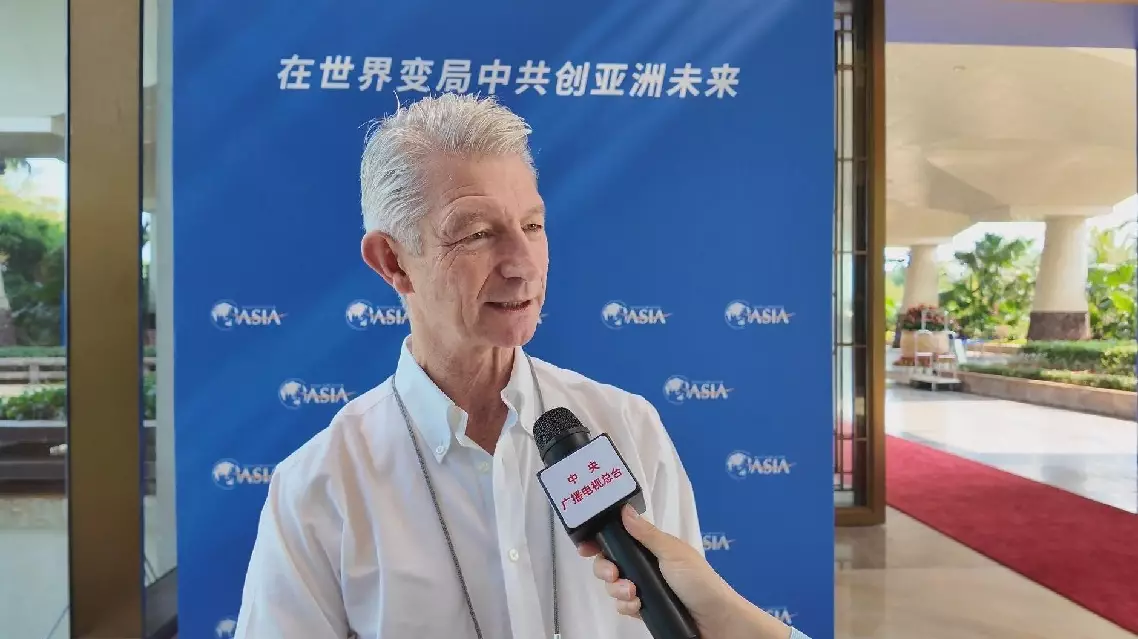
Australian business leader optimistic about future of China-Australia cooperation


